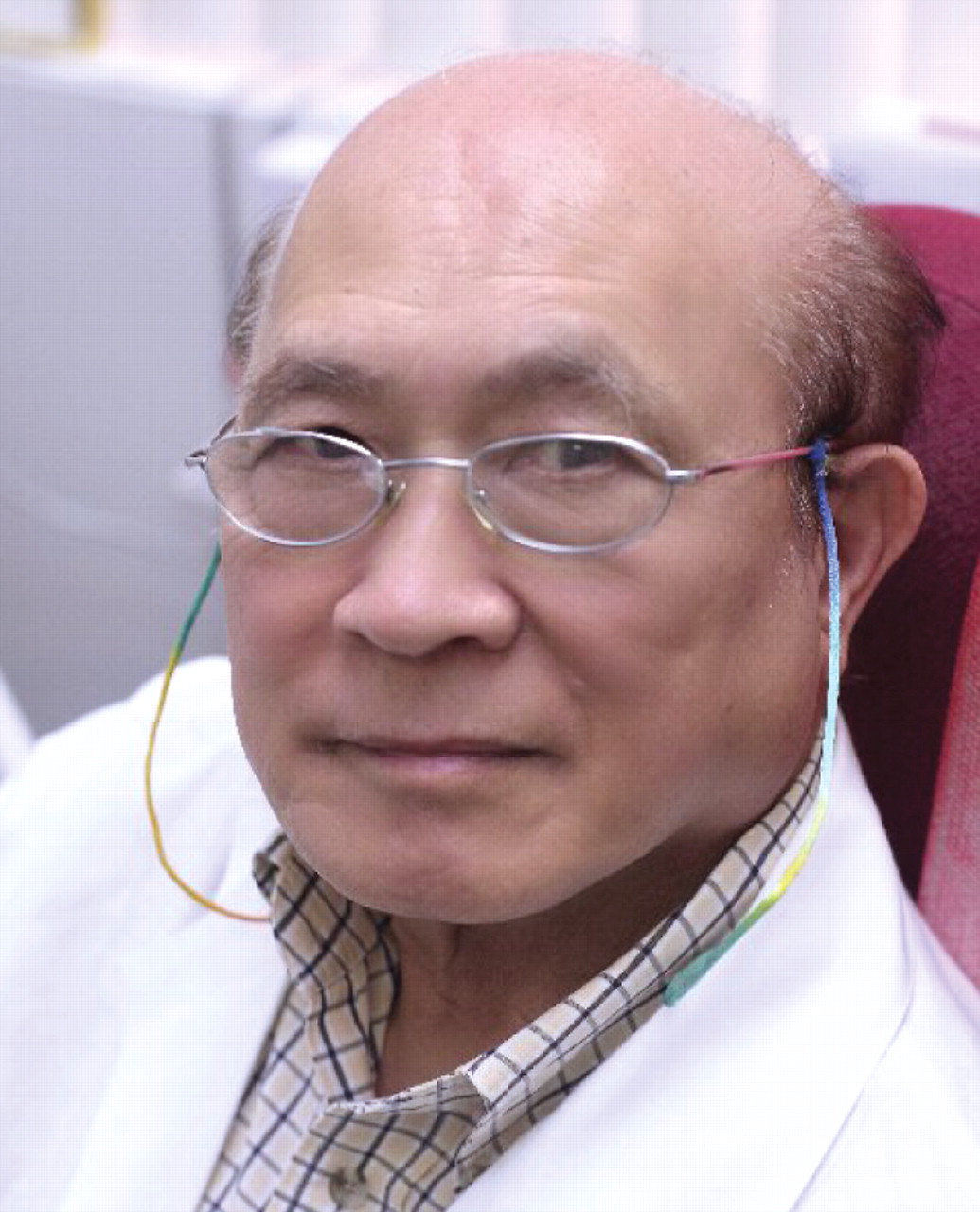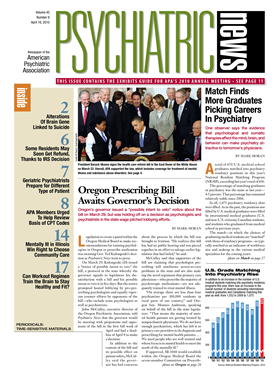Leighmin Lu, M.D., wants to retire. One of six psychiatrists in the U.S. Virgin Islands, Lu, age 75, has cut his workday down to a couple of hours, but he can't walk away completely because there's no one to take his place.
Lu's dilemma is personal, but it reflects larger problems in the tiny Caribbean territory.
If the U.S. Virgin Islands looks like a tropical paradise, its mental health system is in need of some down-to-earth assistance, according to APA members and federal officials who visited in February.
“The most striking thing we saw was the high level of need accompanied by the high level of dedication of the professionals there,” said Evan Eyler, M.D., a clinical associate professor of family medicine and psychiatry at the University of Vermont and the Fletcher Allen Hospital in Burlington.
Eyler was one of 10 APA Transformational Leadership in Psychiatry fellows who took part in the trip. The fellowship prepares early- and mid-career psychiatrists to become agents of change in public psychiatry.
Overlying the sunny image of cruise ships and posh hideaways for the wealthy in the Virgin Islands is a 20 percent poverty rate, compounded by prices pushed up by the influx of tourist dollars, and the islands' status as a U.S. territory.
The mental health crisis on the islands stems from that confluence, said Kenneth Thompson, M.D., medical director of the Center of Mental Health Services, a part of the Substance Abuse and Mental Health Services Administration (SAMHSA), in an interview.
Territorial status means that some federal programs standard in the 50 states are not available or are restricted on the islands.
For instance, Medicaid payments are capped. Supplemental Security Income (SSI), often a key support for persons with chronic mental illness, is provided at much lower rates than in the states, said Thompson.
Territorial status also means that federal taxes collected on the islands stay in the territory, but because poverty is so endemic, fewer tax dollars per capita are collected than in the states.
The group of APA fellows and their mentors went to the Virgin Islands to observe the mental health system and learn what its needs are, said Annelle Primm, M.D., M.P.H., who led the APA group. Primm is APA's deputy medical director and head of its Office of Minority and National Affairs.
“Health care financing and the mental health care system in the Virgin Islands are at a disadvantage,” Primm told Psychiatric News. Constricted territory budgets have also limited resources available for the public psychiatric system.
Ironically, funding basic services is so difficult that many patients are sent off the islands for long-term treatment, costing the territory $10 million a year. That's money that might be better spent locally on planning and staffing for the system.
In their preliminary conclusions, the group identified several starting points for progress. These ranged from epidemiological studies of mental illness prevalence and an assessment of the mental health workforce to cost-of-living issues for recruited professionals and education of local politicians on mental health issues.
The APA fellows also will suggest ways to help local health officials attract and recruit a psychiatric workforce.
“We try to think from a systems perspective, look at resource allocation, and bring the best thinking about the recovery model to bear,” said Eyler. Strengthening the collaboration between primary care and psychiatry would help, too, she said.
According to Lu, the main reason the government can't recruit psychiatrists is simple: “It doesn't pay enough.” The salaries offered by government clinics are perhaps half of what psychiatrists make on the mainland, he said.
One way to attract psychiatrists to the Virgin Islands would be to allow them to work in government clinics half time (at government salaries) but also to set up private practices to make up for the lower income, he said.
But money is not the only problem, said Primm. “There are insufficient numbers of psychiatric nurses, psychiatric social workers, and psychologists, so the psychiatrists are bearing most of the burdens of care,” she said. “Collaborative work across different types of mental health professions is minimal; such collaboration is essential for the establishment of a comprehensive mental health system.”
The islands' division of mental health is now headed by the territory's already over-burdened deputy health commissioner, so the team will suggest appointing a qualified, experienced psychiatrist or mental health professional with administrative experience to fill the post fulltime and organize the revitalization of the mental health system.
As for funding, SAMHSA already provides some block-grant money, and more might be obtainable under programs addressing homelessness, HIV, children, and trauma, if grant proposals were submitted for mental health projects related to these areas.
Another way to improve the system would be for SAMHSA's Minority Fellowship Programs in psychiatry, psychology, social work, nursing, and marital and family therapy to recruit fellows interested in working in the Virgin Islands.
In addition, designation as a federal Health Professional Shortage Area would open doors for luring psychiatrists and other mental health professionals to the islands in exchange for educational-loan repayment or other incentives.
Some innovative recruiting efforts might also look in the United States for Virgin Islanders who have left home to pursue their education and are willing to return now. Students often go off-island for training and don't return.
The University of the Virgin Islands does not have a medical school, although its nursing school and Center for Health Disparities might serve as points of collaboration to develop local expertise and conduct mental health research.
The visiting team also suggested strengthening ties to stateside organizations like APA and the National Association of State Mental Health Program Directors and to medical schools, especially those at historically black colleges and universities, since most of the islands' population is black.
The next step for the fellows will be continued contact and consultation with the mental health leadership on the islands, said Eyler.


